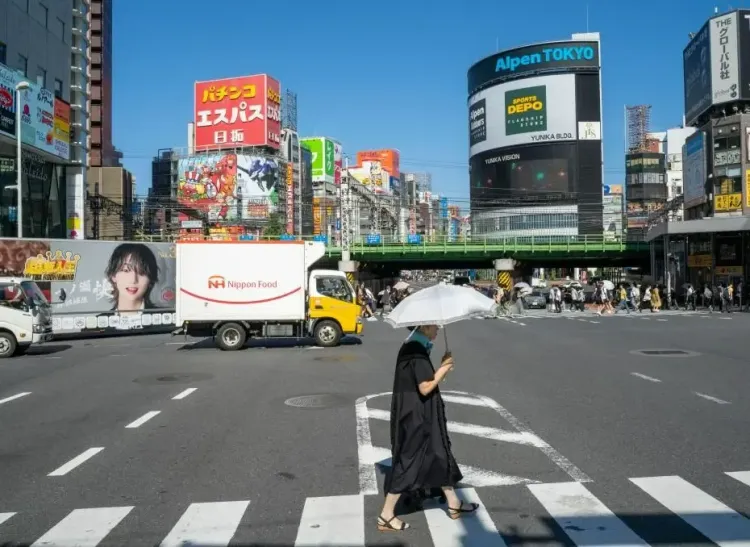Did Japan Just Experience Its Third-Hottest September Ever?

Synopsis
Key Takeaways
- Third hottest September on record in Japan.
- Average temperature was 2.49°C above the norm.
- Over 100,000 heatstroke cases reported.
- Significant impact on the elderly population.
- Climate change continues to exacerbate health risks.
Tokyo, Oct 1 (NationPress) Japan's average temperature for September has been recorded as the third highest since the inception of records in 1898, according to the country's weather agency on Wednesday.
The Japan Meteorological Agency (JMA) reported that the temperature during September was 2.49 degrees Celsius above the average calculated over a 30-year span from 1991 to 2020.
The record for the hottest September was set in 2023, with temperatures exceeding the norm by 2.66 degrees Celsius, followed by 2024 with an increase of 2.52 degrees Celsius.
Regionally, both eastern and western Japan experienced temperatures that were 2.7 degrees higher than average, while northern Japan recorded a rise of 2.2 degrees.
Weather authorities have cautioned that these elevated temperatures are likely to persist into the following month.
Japan recorded its hottest summer ever in 2025, with a nationwide average temperature 2.36 degrees Celsius above the long-term average, a figure that significantly exceeded previous record highs set in 2022 and 2023, which were 1.76 degrees Celsius above average.
This season, a staggering 100,143 individuals have been hospitalized due to heatstroke, surpassing the 100,000 mark for the first time, as per the Fire and Disaster Management Agency.
The data from May through September 28 indicates the highest number since 2015, when the survey period expanded to include May, exceeding the prior record of 97,578 last year, according to preliminary data released by the agency.
Among those transported, 116 patients succumbed this year, while 36,448 others exhibited symptoms that necessitated hospitalization.
Individuals aged 65 and older accounted for 57,235, which is over half of the total. By prefecture, Tokyo had the highest number of cases with 9,309, followed by Osaka with 7,175, and Aichi with 6,630.
Heatstroke in Japan is primarily attributed to environmental factors, particularly elevated temperatures and humidity, compounded by an aging population and urban heat island effects in cities. Physiological factors like age, chronic illnesses, and dehydration heighten vulnerability, especially among the elderly, who possess a diminished ability to regulate body temperature.









